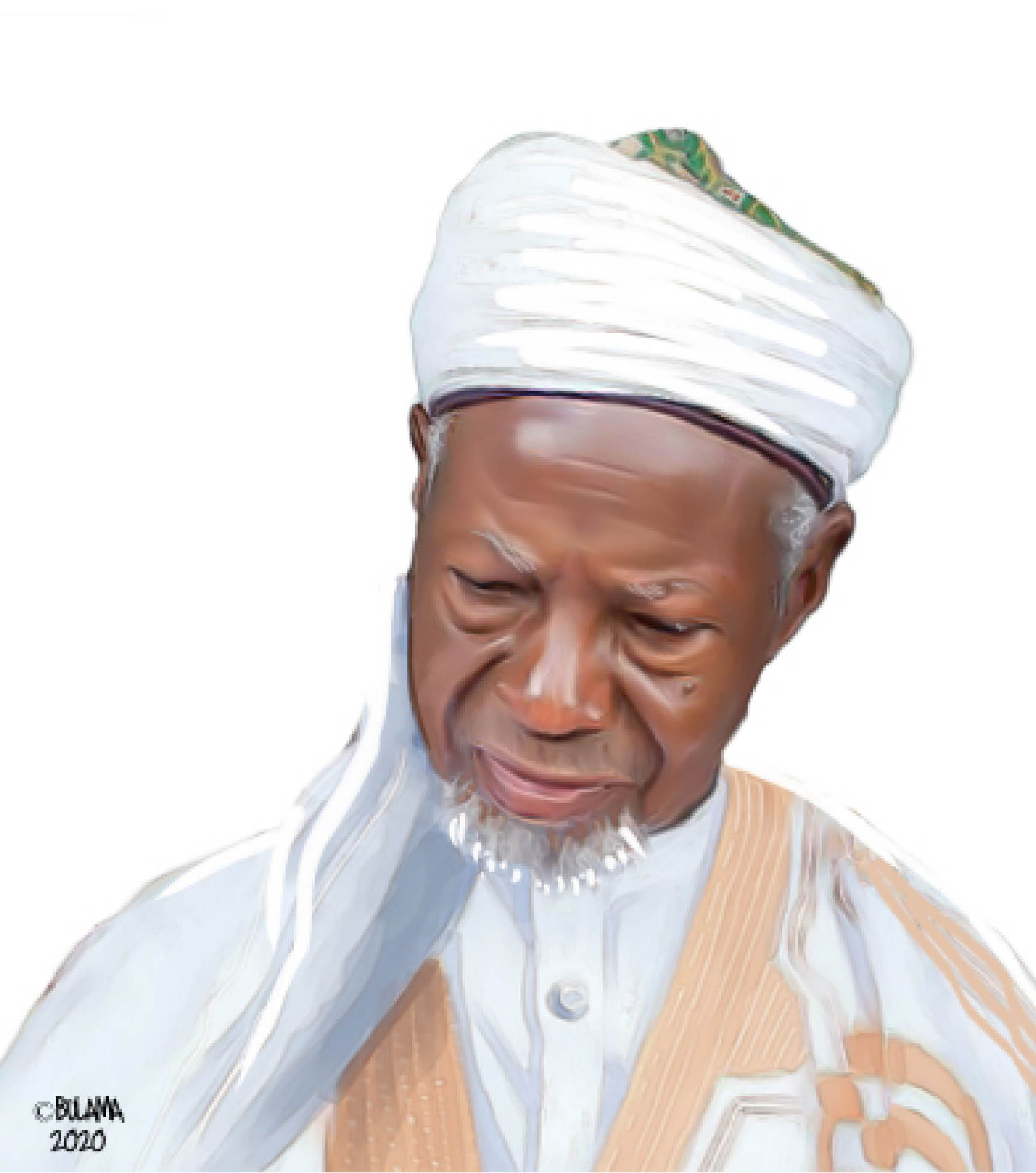‘Let me guess’ Asabe said as soon as I answered her call. ‘You woke up on the right side of the bed this morning. Then you looked up and saw Tahir beaming that enchanting smile of his that got you spell-bound the day you met him. And being in such a lovey-dovey mood, you decided to send me an ancient love song to make sure I share in your joy and happiness.’ She declared.
‘No dear friend, you got everything wrong this time. I actually sent you the song to recruit you in my mourning mood. The brains behind that timeless love song has died.’ I explained.
‘Oh you mean she’s been around all this time? Honestly I thought she’s been dead a long time ago, I mean her song has been around since we were little. I simply didn’t think she’s alive before now.’ Asabe replied, not really affected by my bed news.
‘I think you are referring to the singer. Yes Uwani Zakirai has been dead a long time ago. But I’m referring to the man who wrote the lyrics and got her to sing it.’ I answered.
‘Are you telling me that it wasn’t a true love story? Do you mean that it was a man and not a woman, who so eloquently captured the pain and heartache of first love? Are you saying that the beautiful serenade known as “Habibu ‘dan makaranta’ was the brainchild of a male rather than a female mind? So who was this man?’ She finally asked.
‘Somehow I can’t believe that we never had this discussion with you.’ I replied. ‘We had a lengthy chat over it with Tahir, when both the identity of the song-writer and the real name of the song’s subject became known to me two years ago. I thought I’d had a similar discussion with you and Maryam afterwards. Anyway it turns out that a veteran broadcaster, known as Alhaji Yusuf Ladan, was the author of the song that mesmerized us all these decades and nurtured our hearts with images of a bitter-sweet romance between a teenage village beauty and a young student schooling far from home.
Well Alhaji Yusuf died today or was it last night? And the story is all over the media. So that’s why I sent the song to you, to Maryam and a few others, hoping we can all mourn the great love bard and pray to Almighty Allah to grant him forgiveness and a home in Aljannah.’ I explained.
‘That’s very thoughtful of you Bint. May Allah SWT have mercy on his soul, amin. But I still find it hard to believe that those wordings came from the mind of a man. Do you recall the parts where she wails ‘I’ve gone or deaf oh Habibu I’ve gone deaf’? That was out of the pain of separation or an inability to listen to any voice of reason because she was so love-sick. I can’t believe any man can have that much empathy for our feelings. Are you sure about your sources Bint?’ Asabe queried.
‘Of course I am. Look when the issue came up almost two years ago, in one of my chat groups, the focus was on who the guy was that the lady fell in love with. Like you and I, no one in the group thought it wasn’t a true-life story captured in a song. There were even guesses as to who Habibu was. Some real-life Habibus were mentioned as the possible subject of the song because they were western-educated elderly men who must have been young students at the time the song was composed.
While the discussion was going on, someone remembered reading a piece on the song written by Dr. Ibrahim Sheme, publisher of Mujallar Fim and an authority on Hausa music. He contacted him with our enquiries and Ibrahim Sheme sent us an interview he conducted with the late Yusuf Ladan in which he narrated everything about the famous serenade.
First of all, the lover’s name is Azizu not Habibu as popularly thought. Then the song came about when Malam Yusuf, then a young producer at the Broadcasting Corporation of Northern Nigeria BCNN, heard that a famous Hausa singer by the name Uwani Zakirai was visiting Kaduna at the time. He located her at her accommodation and requested her to come and sing a song he had written.
She told him she wasn’t literate and therefore couldn’t sing a written song. Undaunted, Alhaji Yusuf took the trouble to be visiting her every day at that residence to tutor her on the lyrics until she memorized them. After that he invited one Nababa mai Kalangu, a local drummer to help provide the drumbeat. Then the late Yusuf Ladan went into town and invited some young singing ladies to come and provide the back ground vocals to the song. Everything was produced at the recording studio of the BCNN way back in the 1960s. And this, dear Asabe, is the history of the timeless love song we all thought was a true story.’ I concluded.
‘But he was a genius, no less. Imagine putting oneself in the place of a young teenage girl and capturing all the pain and agony of romantic separation in such a pleasant, seemingly effortless way.’ Asabe marvelled.
‘Yes indeed he was. Additionally he was a thoroughly dedicated producer. I mean another person might have been discouraged by her confessed illiteracy to drop the idea or to look for someone else. But Alhaji Yusuf stuck with Uwani Zakirai and took great trouble to tutor her till she could recite every line from memory. He then went ahead to produce one of the greatest love songs in Hausa language. It was almost as if he knew the song will become a timeless wonder. He put his heart and soul into it.’ I opined.
‘Yes he did Bint, yes he truly did. And by sending us this song today, you’ve mobilized us to pray in memory of a talented wordsmith and a dedicated civil servant. May Allah SWT forgive his shortcomings, amin.’
‘Amin ya Rabbil aalamin.’ I echoed before bidding her farewell and putting off my phone.

 Join Daily Trust WhatsApp Community For Quick Access To News and Happenings Around You.
Join Daily Trust WhatsApp Community For Quick Access To News and Happenings Around You.


